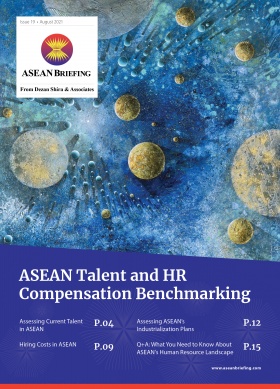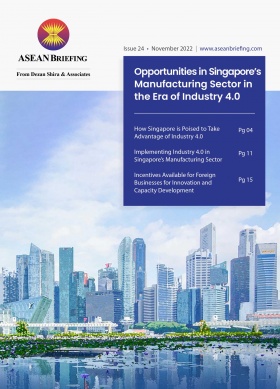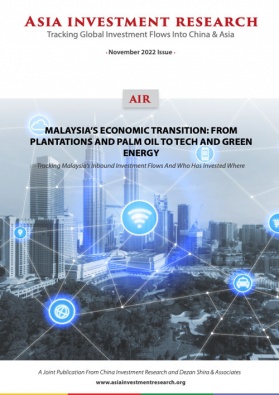Philippines to Establish Sovereign Wealth Fund
The Philippines may soon establish a sovereign wealth fund, joining the ranks of developing countries that have set up government-run funds to spur infrastructure development. However, concerns persist over fund oversight and diverting critical resources to finance the fund.
Philippine President Ferdinand Marcos Jr. has backed the creation of a sovereign wealth fund – known as the Maharlika Investment Fund – as a means of raising funds and directing investments towards high-cost infrastructure projects.
The President’s supporters are working on passing a bill through congress to create the fund in the face of criticism from the opposition, some of whom question the fund’s utility.
With the government lacking surplus revenues to seed the fund, foreign investors may ultimately play a large part in determining the success or failure of the Philippines’ new sovereign wealth fund project.
Why is the Philippines planning to start a sovereign wealth fund?
Sovereign wealth funds are state-owned investment funds usually financed by surplus revenues or reserves. They are often created by commodity-rich exporters, such as Norway, Saudi Arabia, and Qatar, to stabilize national budgets, create savings for their citizens, or promote economic development.
Major developing countries, including Brazil, Russia, India, and China, use sovereign wealth funds to finance major infrastructure projects. The Philippines’ neighbor, Indonesia, established a sovereign wealth fund in 2021 with a similar goal to promote infrastructure investment.
If successful, a sovereign wealth fund has the potential to address the Philippines’ major infrastructure needs and promote economic growth. Critics, however, warn that the fund could create opportunities for corruption and divert resources away from the country’s other needs.
Specifically, the sovereign wealth fund would be used to build capital-intensive infrastructure projects like dams, power grids, and bridges.
Legislators initially aimed to inject US$4.9 billion in seed funding to kick off the fund. That would have been slightly less than Indonesia’s seed funding of US$5.4 billion, which grew to US$24.5 billion a year later following investments from foreign investors.
However, legislators reduced the proposed seed funding after the opposition criticized early plans to seed the fund in part using state-run pension funds. Authors of the bill withdrew that aspect of the plan in response to the backlash.
Now, the Development Bank of the Philippines and the Land Bank of the Philippines will provide a combined PHP 75 billion (US$1.35 billion) in seed funding, while the central bank will provide funding through dividends that will bring the total to about PHP 110 billion (US$1.99 billion).
Addressing transparency concerns
Opposition politicians and some sections of the business community have criticized Marcos Jr.’s plans, arguing that a sovereign wealth fund would lack transparency and create opportunities for corruption. The sovereign wealth fund of the Philippines’ neighbor, Malaysia, was at the center of the country’s notorious 1MDB scandal, which eventually led to the ouster of Prime Minister Najib Razak.
Concerns about corruption were also high because Marcos Jr. was initially slated to be chairman of the board overseeing the fund. Under the revised draft of the bill to create the fund, the finance secretary would hold the position instead of Marcos Jr.
Supporters of the fund say that it would be more secure and institutionalized than 1MDB because it would abide by the Santiago Principles of the International Working Group of Sovereign Wealth Funds through a three-layer mechanism for checks and balances. This means that the fund would have shared congressional oversight and be subject to an internal audit, an external audit, and an examination and audit by the Commission on Audit.
Updates to the draft legislation sought to reassure the public about fears of corruption and mismanagement. The revised legislation increased the proportion of independent directors on the fund’s management to increase independent oversight.
Further, the new legislation introduced a penal provision for those who commit act of gross negligence, fraud, actions in breach of any investment agreement, and resulting in a loss suffered by the fund, carrying penalties of one to five years in jail and fines. The revised legislation also proposed devoting at least 20 percent of the fund’s net profits to social welfare projects.
What role will foreign investors play?
Foreign investors may end up becoming major players in the Philippines’ sovereign wealth fund. Because the Philippines does not usually run trade surpluses, it does not fit the profile of most countries that establish sovereign wealth funds from surplus revenues. Typically, the Philippines needs to take on debt to finance its development projects.
Indonesia, like the Philippines, does not fit the traditional profile of a country with a sovereign wealth fund, but nonetheless established one by leveraging the role of foreign investors in financing the fund. Foreign investors also played an important role in Malaysia’s ultimately ill-fated 1MDB fund.
Given the Philippines’ economic profile, foreign investors may similarly be called upon to act as key stakeholders in the sovereign wealth fund, following in the footsteps of other Southeast Asian countries. Due to the fund’s somewhat contentious start, investors may take a wait and see approach to see how it takes shape if and when legislators pass the bill.
More broadly, a successful sovereign wealth fund would address the Philippines’ significant infrastructure deficits, which hamper economic development. Such a result would make the Philippines a more attractive destination for foreign investment of all kinds.
About Us
ASEAN Briefing is produced by Dezan Shira & Associates. The firm assists foreign investors throughout Asia and maintains offices throughout ASEAN, including in Singapore, Hanoi, Ho Chi Minh City, and Da Nang in Vietnam, Munich, and Esen in Germany, Boston, and Salt Lake City in the United States, Milan, Conegliano, and Udine in Italy, in addition to Jakarta, and Batam in Indonesia. We also have partner firms in Malaysia, Bangladesh, the Philippines, and Thailand as well as our practices in China and India. Please contact us at asia@dezshira.com or visit our website at www.dezshira.com.








